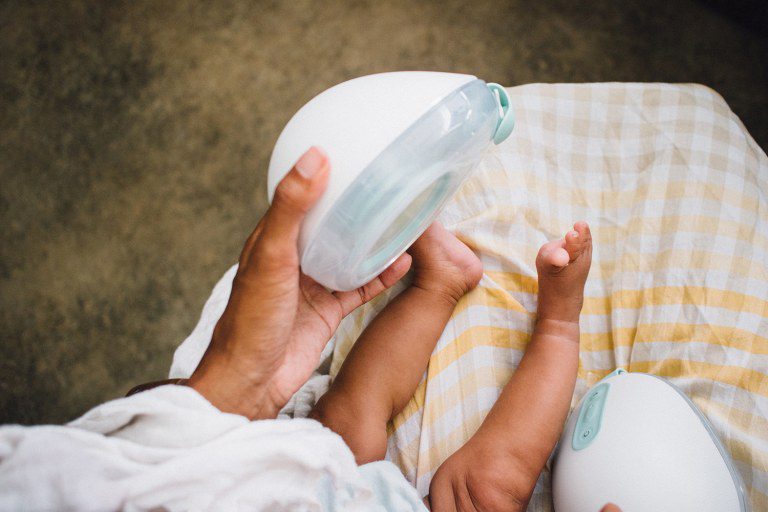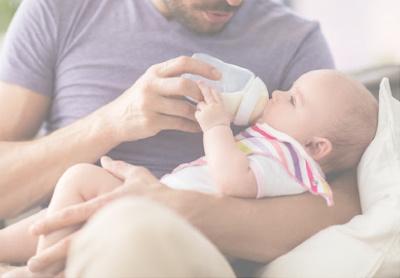How Early Can You Get Pregnancy Symptoms With 3rd Child? Early Signs Revealed!
Pregnancy symptoms can start as early as a few weeks after conception, even with a third child. These symptoms can include a missed period, fatigue, breast tenderness, nausea, and frequent urination.
Your body may also show signs of pregnancy earlier with a third child, such as an early baby bump. Experiencing pregnancy symptoms is a strong indication that a woman may be expecting a baby. While the exact timing of these symptoms can vary from person to person, it is not uncommon for women to start experiencing the signs of pregnancy within a few weeks after conception.
This is true even for women who are already on their third pregnancy. In fact, the body tends to show signs of pregnancy earlier with subsequent pregnancies, as it already knows the drill of preparing for a baby. From a missed period to early baby bump, there are several symptoms that can manifest quite early in a third pregnancy. We will explore when and how early pregnancy symptoms can occur with a third child.
Signs Of Early Pregnancy
During the early stages of a third pregnancy, one of the signs you may experience is an early baby bump. Your body has already been through pregnancy before, so it knows what to do and starts making room for the baby earlier, making concealment more difficult.
When it comes to pregnancy, every woman’s experience is unique. While some women may not notice any symptoms until they miss their period, others may start experiencing early signs of pregnancy even before they expect it. These early symptoms can vary from woman to woman and even from pregnancy to pregnancy. In this article, we will explore some of the common signs of early pregnancy, specifically for women who are expecting their third child.
Missed Period
A missed period is often the first telltale sign of pregnancy. It occurs when the fertilized egg implants itself into the uterus, causing a halt in the menstrual cycle. For women who have been pregnant before, they may notice this sign even earlier than with their previous pregnancies. It’s important to note that a missed period should always be followed up with a pregnancy test to confirm pregnancy.
Breast Tenderness
One of the earliest signs of pregnancy is breast tenderness or sensitivity. Hormonal changes in the body can cause the breasts to become swollen, sore, or tender to the touch. This symptom can occur as early as one to two weeks after conception and may be more pronounced in subsequent pregnancies.
Fatigue
Feeling excessively tired or fatigued is another common early sign of pregnancy. This is due to the increased levels of progesterone in the body, which can cause drowsiness and make it difficult to stay awake. Women who are pregnant with their third child may experience fatigue earlier than with their previous pregnancies.
Nausea And Vomiting
Nausea and vomiting, often referred to as morning sickness, is a classic pregnancy symptom. While it usually starts around 6 weeks pregnant, some women may experience these symptoms earlier. For women on their third pregnancy, morning sickness may occur earlier and be more severe than with their previous pregnancies.
Frequent Urination
Increased frequency of urination is another sign that can occur early in pregnancy. Hormonal changes can cause the kidneys to produce more urine, resulting in the need to urinate more frequently. Women who have been pregnant before may notice this symptom earlier than with their previous pregnancies.
Food Aversions
During early pregnancy, many women develop aversions to certain foods or strong smells. This is believed to be a protective mechanism to avoid potentially harmful substances. Women who are expecting their third child may notice food aversions earlier than with their previous pregnancies.
Mood Swings
Pregnancy hormones can have a significant impact on a woman’s mood, leading to emotional ups and downs. Mood swings are a common early pregnancy symptom and may be more pronounced in subsequent pregnancies. It’s important for pregnant women to prioritize self-care and seek support if they’re feeling overwhelmed.
In conclusion, the signs of early pregnancy can vary from woman to woman and even from pregnancy to pregnancy. Women who are expecting their third child may notice these symptoms earlier or more intensely than with their previous pregnancies. It’s important to remember that every woman’s pregnancy journey is unique, and if you suspect you may be pregnant, it’s best to consult with a healthcare professional for confirmation and support.
Third Pregnancy: Unique Symptoms
During a third pregnancy, you may experience unique symptoms earlier than before due to your body being familiar with the process. These can include an early baby bump and difficulty concealing it as your body begins to make room for the baby.
Increased Baby Bump Early On
One of the unique symptoms of a third pregnancy is an increased baby bump early on. This is because your body has already gone through the process of carrying and delivering a baby multiple times before. The abdominal muscles have already been stretched out, so your body knows what to do and begins making room for the baby earlier than in previous pregnancies. As a result, the baby bump becomes more noticeable sooner, making it harder to conceal your pregnancy.
Stronger Fetal Movements (quickening)
Another distinct symptom of a third pregnancy is stronger fetal movements, also known as quickening. Quickening refers to the moment when you first feel your baby’s movements in the womb. With each subsequent pregnancy, you may notice the fetal movements becoming stronger and more pronounced. This is because your body has already experienced the sensation before and is more familiar with what to expect.
More Intense Pregnancy Symptoms
Third pregnancies often come with more intense pregnancy symptoms compared to previous pregnancies. This is because your body has already been through the hormonal changes and physical transformations twice before. The increased levels of hormones and the changes in your body can lead to heightened symptoms such as morning sickness, fatigue, mood swings, and breast tenderness. It’s important to listen to your body and seek support from your healthcare provider if these symptoms become overwhelming or affect your daily life.
Changes In Previous Pregnancy Symptoms
In addition to more intense symptoms, you may also notice changes in previous pregnancy symptoms during your third pregnancy. Some symptoms that were present in previous pregnancies may be more or less pronounced this time around. For example, if you experienced strong food cravings in your previous pregnancies, you may find that they are not as prominent in your third pregnancy. On the other hand, symptoms that were not as noticeable in previous pregnancies may become more apparent this time. Every pregnancy is unique, and your body may respond differently each time.
Factors Influencing Early Symptoms
When it comes to early pregnancy symptoms, there are several factors that can influence how and when they manifest. These factors include hormonal changes, individual differences, previous pregnancy experiences, and age and overall health. Understanding these factors can help expectant mothers better navigate the early signs of pregnancy and alleviate any concerns or uncertainties that may arise. Here’s a closer look at each of these key factors.
Hormonal Changes
Hormonal changes play a significant role in pregnancy, and they can vary from woman to woman and even from pregnancy to pregnancy. During the early stages of pregnancy, a surge in hormones occurs as the body prepares to support and nurture the growing baby. This hormonal shift can trigger a range of symptoms such as breast tenderness, fatigue, nausea, and mood swings.
Individual Differences
Every woman’s body is unique, and this individuality extends to pregnancy symptoms as well. Some women may experience early symptoms soon after conception, while others may not notice any changes until several weeks into their pregnancy. Factors such as genetics, metabolism, and overall health can influence when and how early symptoms manifest.
Previous Pregnancy Experiences
For women who have previously been pregnant, their bodies may have a heightened sensitivity to the hormonal changes and physical demands of pregnancy. This increased familiarity with the process can result in earlier symptom recognition. Additionally, women who have had multiple pregnancies may find that their abdominal muscles have been stretched and may begin to show a baby bump earlier than during their first pregnancy.
Age And Overall Health
A woman’s age and overall health can also impact how early pregnancy symptoms appear. Younger women may experience symptoms sooner due to their generally more active reproductive systems. On the other hand, older women may have hormonal fluctuations that can delay or affect the timing of early symptoms. Additionally, overall health and pre-existing conditions can influence how the body reacts to pregnancy, potentially altering the onset and severity of symptoms.
Overall, it’s important to remember that every pregnancy is unique, and there is no one-size-fits-all experience when it comes to early pregnancy symptoms. However, understanding these factors can help expectant mothers navigate the early stages with more confidence and reassurance.
Differentiating Third Pregnancy From Previous Ones
During a third pregnancy, women may experience pregnancy symptoms earlier than in previous pregnancies, such as an early baby bump and difficulty concealing it. This is because the body already knows what to do and begins making room for the baby sooner.
Body Changes And Baby Bump Visibility
One of the telltale signs of pregnancy is the appearance of a baby bump. However, with each subsequent pregnancy, the baby bump can become more noticeable and appear earlier than in previous pregnancies. This is because your body has already gone through the process of carrying a child multiple times, resulting in stretched abdominal muscles. As a result, your body knows what to do and begins making room for the baby earlier on, making it more difficult to conceal your growing belly.
Variations In Symptom Intensity And Duration
Another way to differentiate a third pregnancy from previous ones is by considering the intensity and duration of pregnancy symptoms. While some symptoms may be similar to those experienced in previous pregnancies, you may notice variations in how intense or long-lasting they are. This is because every pregnancy is unique, and your body may respond differently each time. Some women may find that their symptoms are more intense in subsequent pregnancies, while others may experience milder symptoms. The duration of symptoms can also vary, with some lasting for a shorter or longer period of time compared to previous pregnancies.
Personal Experiences And Expectations
Lastly, personal experiences and expectations can play a role in differentiating a third pregnancy from previous ones. As a mother who has already gone through the experience of pregnancy multiple times, you may have a better understanding of what to expect and what is considered normal for your body. You may notice subtle differences in how you feel or how your body changes compared to previous pregnancies. These personal insights can help you recognize the unique aspects of your third pregnancy and distinguish it from your past experiences.
Managing Early Pregnancy Symptoms
Managing early pregnancy symptoms is crucial for the well-being of both the expectant mother and the developing baby. While every pregnancy is unique, it is not uncommon for women to experience symptoms earlier with subsequent pregnancies, including their third child. By incorporating supportive lifestyle changes, such as maintaining a balanced diet, engaging in regular exercise, ensuring sufficient rest and sleep, seeking medical advice and prenatal care, and practicing mindfulness techniques for symptom relief, pregnant women can effectively navigate the challenges of early pregnancy.
Supportive Lifestyle Changes
Supportive lifestyle changes play a vital role in managing early pregnancy symptoms. By making conscious choices to prioritize your health and well-being, you can minimize the impact of symptoms and enhance your overall pregnancy experience. Some of the supportive lifestyle changes you can adopt include:
- Maintaining a balanced diet
- Engaging in regular exercise
- Ensuring sufficient rest and sleep
Balanced Diet
One of the key aspects of managing early pregnancy symptoms is following a balanced diet. Consuming a variety of nutrient-dense foods can help alleviate symptoms and provide essential nourishment for both the mother and the growing baby. Aim to include:
- Fruits and vegetables for vitamins, minerals, and fiber
- Whole grains for sustained energy
- Lean proteins for growth and development
- Healthy fats for brain development
Regular Exercise
Regular exercise during pregnancy can alleviate symptoms and improve overall well-being. Engaging in activities such as walking, swimming, or prenatal yoga can help manage symptoms such as fatigue, constipation, and mood swings. However, it is important to consult your healthcare provider before starting any exercise routine and to modify activities as needed to ensure safety and comfort during pregnancy.
Sufficient Rest And Sleep
Getting sufficient rest and sleep is crucial for managing early pregnancy symptoms. Fatigue is a common symptom experienced during pregnancy, especially in the early stages. Incorporating relaxation techniques, taking short naps, and establishing a regular sleep routine can help alleviate tiredness and promote better overall sleep quality.
Seeking Medical Advice And Prenatal Care
Seeking medical advice and prenatal care is essential for managing early pregnancy symptoms and ensuring a healthy pregnancy. Regular check-ups with your healthcare provider will help monitor your health, address any concerns, and provide guidance on managing symptoms. Your healthcare provider can also discuss suitable prenatal vitamins and supplements to support your nutritional needs.
Mindfulness Techniques For Symptom Relief
Mindfulness techniques can be valuable tools for managing early pregnancy symptoms. Practices such as deep breathing, meditation, and yoga can help reduce stress, alleviate nausea, and promote a sense of calm. It is important to listen to your body, take breaks when needed, and prioritize self-care throughout your pregnancy journey.
By incorporating these supportive lifestyle changes and seeking appropriate medical advice, pregnant women can effectively manage early pregnancy symptoms and promote a healthy and comfortable pregnancy experience with their third child.

Credit: www.usmagazine.com
Frequently Asked Questions For How Early Can You Get Pregnancy Symptoms With 3rd Child
How Early Can You Feel Your Third Pregnancy?
During the third pregnancy, you may start feeling early signs such as an early baby bump and difficulty hiding it. Your body remembers, and the abdominal muscles have already stretched, making room for the baby sooner.
What Are The Signs Of Third Pregnancy?
Signs of third pregnancy include showing sooner, as the body knows what to do since the muscles have stretched before, making concealment more difficult. Other symptoms may include early baby movement, back pains, tiredness, and a bigger baby bump. These symptoms may occur within a few weeks of becoming pregnant.
How Early Do You Start Showing With Third Pregnancy?
During a third pregnancy, you may start showing earlier due to your body knowing what to do from previous pregnancies. By this time, your abdominal muscles have already stretched, making concealment more difficult.
Do Pregnancy Symptoms Start Earlier With Subsequent Pregnancies?
Pregnancy symptoms may start earlier with subsequent pregnancies. The body is more familiar with the process, so it prepares for the baby earlier, making concealment more difficult and causing an early baby bump.
Conclusion
In the third pregnancy, you may start experiencing symptoms earlier compared to your previous pregnancies. One of the most common signs is an early baby bump, as your body knows what to do after being stretched out a few times before.
This can make concealment more difficult. However, every pregnancy is unique, and symptoms can vary from person to person. If you suspect you may be pregnant, it’s always best to consult with a healthcare professional for proper guidance.








